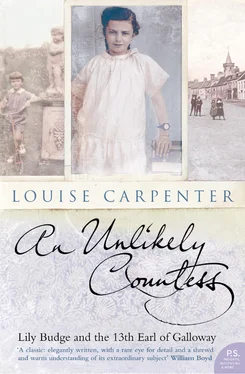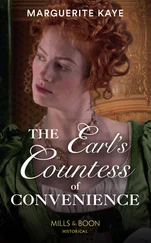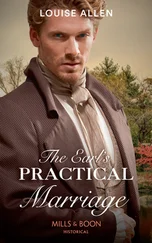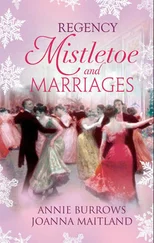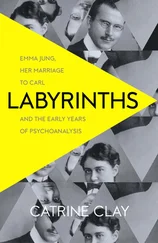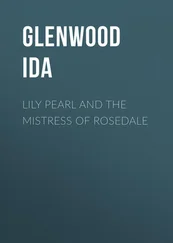We cannot know how much of this early behaviour had its foundations in a genuine and innate mental condition and how much of it was the result of profound unhappiness and childhood confusion exacerbated by a wildly inappropriate environment. If one were to hazard a guess, it would be a combination of the two. However bizarre Randolph’s behaviour was at Belhaven, he seems to have been capable of self-examination. In his unpublished memoirs which are drawn on here, it is around this period that he first starts to refer to himself in terms of being considered ‘mad’ and ‘a lunatic’. He uses the words freely, at times almost with a degree of relish. Shortly after his eleventh birthday, for instance, at the end of October 1939, he contracted the measles and his behaviour became what he calls ‘distorted and ‘slightly mad’. ‘I was gripped to hypnotism with fright and terror,’ he later wrote.
That Britain was once again at war with Germany raised Lord Galloway up to his full military potential. He had maintained a keen interest in the Territorial Army in the inter-war years, and now he raised and commanded the 7th (Galloway) battalion of the King’s Own Scottish Borderers. (A year later he was to retire from the battalion on medical grounds. He was appointed Honorary Colonel but, undaunted, he would raise the local unit of the Home Guard.) Whenever Lord Galloway and Randolph were resident at Cumloden at the same time, Lord Galloway desperately searched for proof of some kind of development in his son. He was usually disappointed. During tea in the dining room he liked to fire general knowledge questions at Randolph, which Randolph could never answer. ‘Don’t pretend to be so silly, foolish boy!’ the dowager countess would snap.
It was not long before the effects of war began to be felt at Cumloden. The house began to receive evacuees, who were housed in its outbuildings, and during the Blitz in the autumn of 1940 extended family from the south began to arrive. Sometime between 14 September and 14 October, 34 Bryanston Square, where Randolph had been born, received a direct hit. Lord and Lady Galloway decided that Lady Antonia was no longer safe in her boarding school in the south of England, so they pulled her out and brought her back to Cumloden. Randolph clung to the hope they would do the same for him. They did not. In light of the increased bombings, it was decided that Belhaven should be evacuated to Dinnet House, an ancient Scottish mansion with poor electricity near Aboyne on Deeside, in north-east Scotland. As a consequence Lord and Lady Galloway considered the location quite safe enough. Randolph was to go back to school.
It was, Randolph wrote later, ‘rather awful’. The boys now worked mainly by candlelight, due to the antiquated and constantly malfunctioning electricity mains, and when it began to snow the school was cut off from all civilisation. Randolph felt more trapped and abandoned than ever. He wanted the comfort of his family. Matron would not do. From a window he would watch the snow fall, his cheeks hot and wet with tears, knowing that with every new inch piling up on the railway tracks, it was becoming increasingly unlikely that he would be able to go home for the holidays. ‘Nevertheless,’ he wrote, ‘my attitude did not stop the snow from falling, the more I cried the heavier the snowfall turned, leaving me a tear stained wreck before the night was out.’ Cumloden, home to his much missed mother and sister, the familiar and comforting faces of the staff and increasing numbers of relatives from the south, felt a long way off. Randolph began to dream of escape. In these dreams, he would be running down the school drive carrying his luggage, Miss Simms in pursuit, wearing the deerstalker hat that had suddenly replaced the coffee-coloured boater since they had arrived in the Highlands.
In December 1941 Lord Galloway decided to move Randolph to Chartridge Hill House, a boarding school near Chesham in Buckinghamshire, a decision that might very well have been shaped by the school’s proximity to the London doctors Randolph was about to see, and his father’s desire to get him into Harrow (Belhaven records state that Randolph ‘went to a private school for special coaching’). In a final flourish of despair, Mr Simms wrote in Randolph’s leaving report that he had driven him to the end of his tether. Another teacher added that Randolph would have to make more of an effort and keep his wits about him, and still another concluded that Randolph was extremely backward for his years and would have to learn to grow up. Randolph might well have been young for his years – he was thirteen – but that Christmas, the schoolmasters’ counsel did not prevent Lord Galloway from pressing ahead with his own programme of development. He presented Randolph with a gun, and soon after Randolph began to go shooting with Mr Malcolm Scott, the gamekeeper. By the end of the holiday, he was accompanying Lord Galloway on organised shoots at Larg. Much to everybody’s surprise, he showed signs of becoming a rather good shot.
Randolph’s enrolment at Chartridge Hill House marked an important change in his family’s approach to him. ‘Through psychological and psychiatric causes that term I had injections inflicted on me by Dr Johnson, the school’s Buckinghamshire doctor man,’ Randolph recorded.
Given Randolph’s perceived instability, it is most likely that Lord and Lady Galloway had decided that it was appropriate for him to be sedated, in order to curb his wild bouts of behaviour. Paraldehyde was the most used sedative in the first half of the twentieth century and could be easily administered by injection. It calmed patients down without impairing their intellectual capacity. But despite being under sedation, Randolph was to receive no soft handling. Lord Galloway instructed Mr Stafford Webber, Randolph’s new headmaster, to forbid him from spending too much time with his southern relatives. Lord Galloway explained that Randolph had become ‘spoiled, pampered and petted’ and that he was still in need of toughening up.
It had already been settled that Randolph would attend Harrow School, just as three generations of his family had done. His passage to the school that had produced Sir Winston Churchill, Lord Byron, and Lord Palmerston was predestined. The full weight of family history had been pointing him in that direction since birth. Virescit vulnere virtus was the family motto and he would simply have to rise to it. That he could not frustrated Randolph deeply, and it made him even more terrified of his father. As is so often the case when the weak are terrified of the strong, the very fear itself feeds the problem, causing paralysis in the former and even greater fury in the latter.
In June 1942 the dowager countess died. She was buried in the graveyard of All Saints’, Challoch, with the other Stewarts. A month later Randolph returned home from school and further irked his father. ‘I gorged and guzzled at my food to grossest excesses, and ate far too much for the parents’ conveniance [ sic ] and expense,’ he wrote, ‘The father man was truly disgusted at me, I was rude, discourteous, uncivil and impolite, not to mention greed [ sic ]’. Randolph’s healthy appetite for buttered rolls, chocolate biscuits, and cakes had always infuriated the late dowager, who had called it ‘vulgar and ungentlemanly’. Lord Galloway did not want to see a display of it either.
Three weeks after Randolph’s fourteenth birthday in October 1942, he sat the Common Entrance exam for Harrow. It was a formality since the school would never have turned him down (his results were predictably ‘abysmally low’, even though he was a little old compared to other candidates). Randolph’s inability to please his father was having a profound effect on his social development. ‘My personality was slowly going to pot,’ he wrote, ‘becoming ever entombed in guilt, with the ever encroaching festoons of gloom entwined about complexes and phobias which had me a spectre’s shadow before that term was up. The guilt was deep and intense, becoming ever more so. I gave up laughing, I dared not even smile, thinking both were wrong.’
Читать дальше
